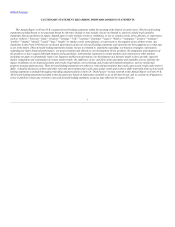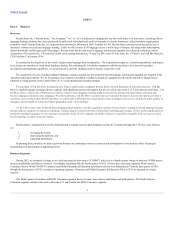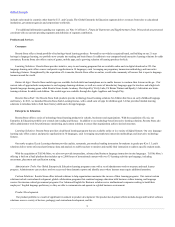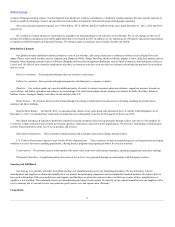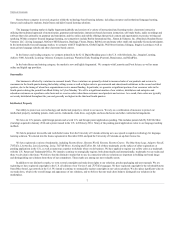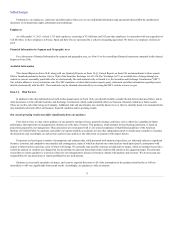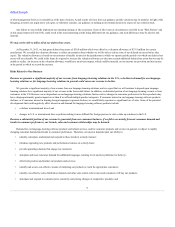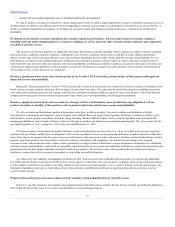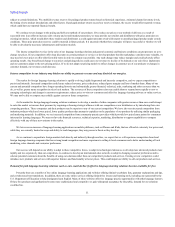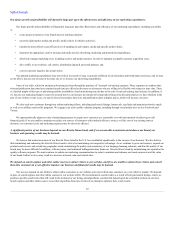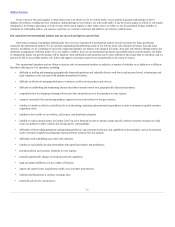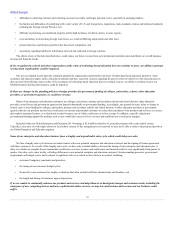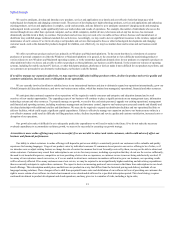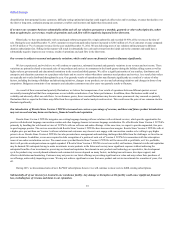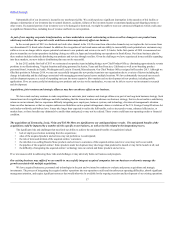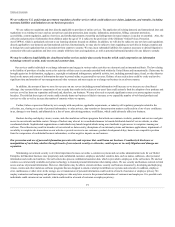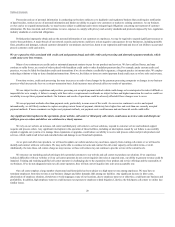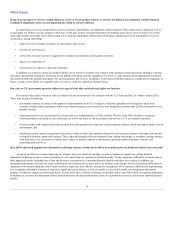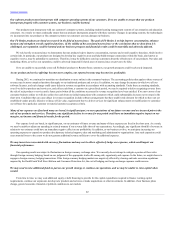Rosetta Stone 2013 Annual Report Download - page 14
Download and view the complete annual report
Please find page 14 of the 2013 Rosetta Stone annual report below. You can navigate through the pages in the report by either clicking on the pages listed below, or by using the keyword search tool below to find specific information within the annual report.
Table of Contents
If one or more of the search engines or other online sources on which we rely for website traffic were to modify its general methodology for how it
displays our websites, resulting in fewer consumers clicking through to our websites, our sales could suffer. If any free search engine on which we rely begins
charging fees for listing or placement, or if one or more of the search engines or other online sources on which we rely for purchased listings, modifies or
terminates its relationship with us, our expenses could rise, we could lose customers and traffic to our websites could decrease.
Our expansion into international markets may not succeed and imposes special risks.
Our business strategy contemplates stabilizing the losses we have experienced in international markets in order to prepare for future growth and
expansion into international markets. We are currently augmenting and optimizing certain of our website direct sales channels in Europe, Asia and Latin
America. In addition, we are continuing to selectively expand and optimize our indirect sales channels in Europe, Asia and Latin America through retailer and
distributor arrangements with third parties. If we are unable to stabilize losses in our international operations successfully and in a timely manner, our ability
to subsequently pursue our growth strategy will be impaired. Such stabilization and expansion may be more difficult or take longer than we anticipate, and we
may not be able to successfully market, sell, deliver and support our products and services internationally to the extent we expect.
Our international operations and our efforts to increase sales in international markets are subject to a number of risks that are in addition to or different
than those affecting our U.S. operations, including:
•difficulty in staffing and managing geographically dispersed operations and culturally diverse work forces and increased travel, infrastructure and
legal compliance costs associated with multiple international locations;
•difficulty in effectively managing third-party e-commerce resellers of our products and services;
•difficulty in establishing and maintaining financial and other internal controls over geographically dispersed operations;
•competition from local language-learning software providers and preferences for local products in some regions;
•expenses associated with customizing products, support services and websites for foreign countries;
•inability to identify an effective and efficient level of advertising, marketing and promotional expenditures in order to maintain acceptable customer
acquisition costs;
•inability to drive traffic to our websites, call centers, and distribution channels;
•inability to register domain names in Country Code Top Level Domains in order to operate country specific websites to permit consumers to easily
locate our products in other countries due in large part to cybersquatting;
•difficulties with providing appropriate and appealing products to suit consumer preferences and capabilities in these markets, such as the potential
need to customize English-based language-learning software solutions for local markets;
•difficulties with establishing successful sales channels;
•inability to successfully develop relationships with significant retailers and distributors;
•potential political and economic instability in some regions;
•potential unpredictable changes in foreign government regulations;
•legal and cultural differences in the conduct of business;
•import and export license requirements, tariffs, taxes and other trade barriers;
•inflation and fluctuations in currency exchange rates;
•potentially adverse tax consequences;
13


